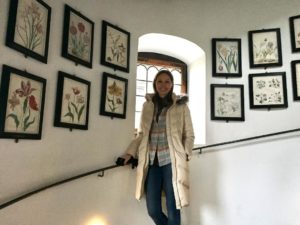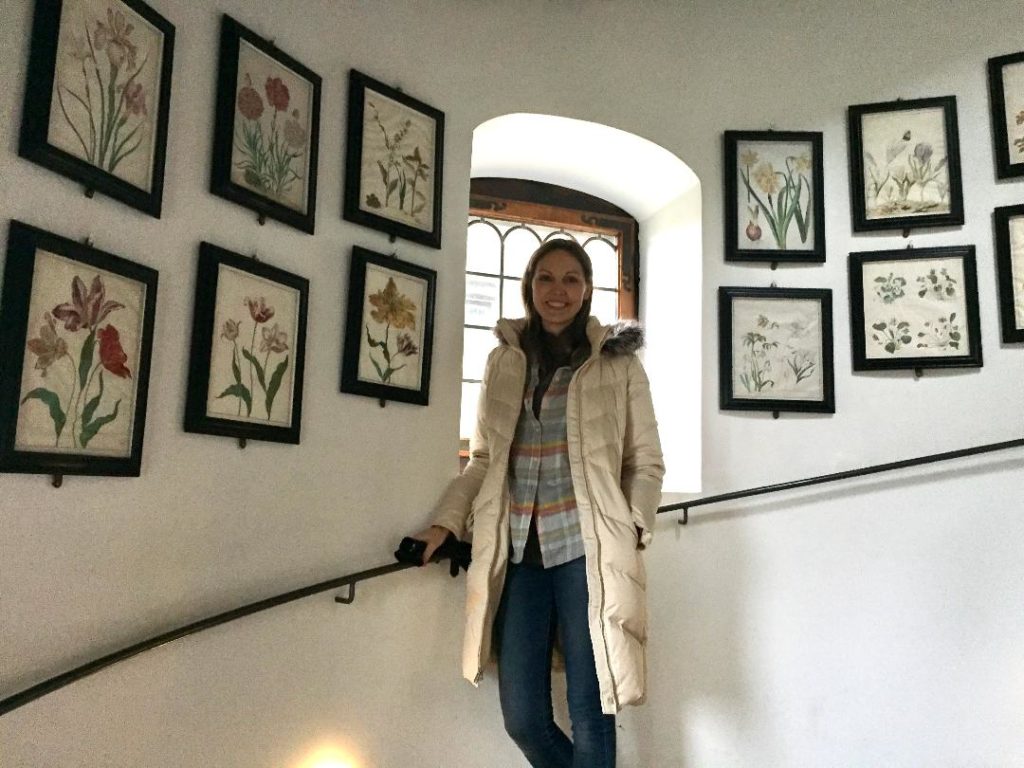Transitions: OB/GYN Physician Turned Homebirth Midwife
Dr. Elizabeth Ross, Ob/Gyn, who had her second homebirth with Brooke Ray Midwife and later worked with them as a homebirth practicing OB/GYN in 2012, has decided to pursue her licensure as a midwife. In this interview, CNM Brooke Ray talks to Dr. Elizabeth Ross about her choice to become a homebirth midwife, and how her previous career as an OB/GYN might inform her training and even her new practice. 
Brooke: Why did you become a physician?
Elizabeth: As the daughter of a family practice physician, I really had no awareness or exposure to anything else when I was younger. Medicine was something I always thought I would do, from middle school age or so. I got on that path very early. In college, I majored in Literature, but I also did all the science and pre-medical classes. I had my path carefully mapped out and my goal was clear: medical school followed by a career as a practicing physician.
Brooke: How did you decide to specialize in Obstetrics?
Elizabeth: In medical school, I was going through my first rotation when I saw my first birth. I was just a student, observing, but I thought, “Wow!” It was one of those crucial moments. I knew at that point that I wanted to do obstetrics. And it suited me well, to be honest. I liked the surgery. I liked the time at the clinic. I loved going to the labor floor. But as the years went by and I got deeper into my training, some questions started to come up for me.
Brooke: Interesting. What happened? Why did you start to question the training and some of the hospital practices?
Elizabeth: Actually, my mother-in-law and my husband, Elliot, were the ones that first started sowing some of these seeds of doubt. My mother-in-law, Veronica Ross, delivered Elliot, her second baby, in a birth center. It was during the seventies, a time when women started to reclaim their power over the birth experience. My mother-in-law’s first delivery was traumatic for her. Her baby was born at a teaching hospital, with students watching, which made her feel exposed and not in control over what was happening to her. When she was pregnant with Elliot, she was determined to find another way. She delivered him naturally, without medications, and it was really a defining moment of her life. Then, one Christmas before Elliot and I were married, she gave me a copy of Ina May Gaskin’s Spiritual Midwifery. At first, I thought, “What is this? Some hippie/trippy thing? Why is she giving me this? I’m an obstetrician!” It went on my nightstand. Then, one night, I was having trouble sleeping. I saw the book and thought, “Well this will surely put me to sleep!” But of course, it was just the opposite: I stayed up all night reading this book. The first half of the book is just birth stories. I was enthralled. Who were these women? Wow. Things shifted for me after that experience. Once you’re made aware, you can’t unring that bell. I was almost done with my residency at that point, and I was supposedly an expert. And yet, I’d just discovered this whole other world, one that I hadn’t known anything about, and I felt kind of like a fraud in a way.
Brooke: Did having these new questions about the birth experience cause you any trouble during your residency?
Elizabeth: I enjoyed parts of my training, but I also often felt that curiosity or skepticism weren’t allowed. And so yes, I did sometimes get into trouble, because I could at times be defiant about wanting to research certain topics. I would get disciplined a lot, and it felt as though I had been called into the principal’s office. It was actually quite traumatic for me. One topic I wanted to research, for example, was “unmedicated birth.” Occasionally, we had patients come in to the University of Florida hospital who stated that they planned to have an unmedicated birth. I wanted to interview this group of patients, to find out more about their experiences. They were often treated with scorn and derision, and I just couldn’t understand that reaction. (This was ten years ago; I do think there are changes to the hospital now.) During this period in my life, I sometimes felt like a terrible resident, someone who couldn’t quite “fall in line.” Looking back, I think it wasn’t the right fit, and I didn’t know that yet. I didn’t fully understand what was behind these feelings the way I do now.
Brooke: What is it about homebirth specifically that captured your heart?
Elizabeth: Within a few months of finishing my residency, I was pregnant. At first, I thought I wanted a birth center experience, but the nearest birth center was pretty far from our house and that made me nervous. I was past twenty weeks pregnant when I finally found Olivia, a homebirth midwife. Olivia was a nurse midwife, like you, Brooke, and she’d had a lot of experience with hospital-based care. However, she’d stepped away from that and created her own homebirth practice. When I met her, we just spoke the same language, and I liked her. And so my husband and I were like, “All right, we’re doing this! We are having a homebirth!” When I try to describe how homebirth captured me, I start to get into spiritual language, even though I don’t consider myself necessarily a spiritual person. I feel like when I’m in that space, whether it was my own homebirths or another woman’s that I’ve had the privilege to attend, I feel like I’m in touch with the divine. There’s something magical, but magical isn’t the word. I think divine is the word. Sometimes I feel this way when I surf. Sometimes, I’ll catch a wave, just the right wave, and I think, “I’m touching the divine right now.” It’s glorious.
Brooke: I agree. Just to clarify, do you still see an important role for the hospital in some births?
Elizabeth: I think the hospital is needed and it’s appropriate, of course, in certain cases. However, in many situations, it can be unnecessary and obtrusive. Homebirth, when the risk is appropriately assessed and the attendants are experts at what they are doing—in other words, when it all lines up as we want it to—it’s an amazing thing.
Brooke: Do you see yourself trying to build more bridges with obstetricians when you become a midwife? That is, with your experience, do you think you’ll be able to dispel some of the negative stereotypes obstetricians have about midwives, and facilitate better communication between these two groups?
Elizabeth: I’m not sure yet. I do ask myself “Is there some way I can engage my previous colleagues?” I think especially about those who have sort of “fallen off the bandwagon” and might be open to new ideas. I wonder what I might do as a homebirth midwife that could make it better for them as physicians. Some of the upset happens when a homebirth transfer comes into the hospital and the obstetrician feels like, “Okay, now I’m going to have to handle what’s in front of me here,” even though they have no connection to the patient. Maybe if some obstetricians were more involved, even in a single prenatal appointment, it could help. And maybe they might trust me because I’ve been in the trenches? It’s hard to know for sure at this point. I’m hopeful though, and bold enough to try!
Author, Sandy Starky
[Edited for clarity and length]


